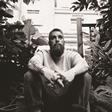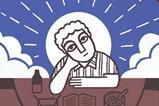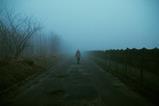Joshua Luke Smith explores the spiritual abundance found in admitting our brokenness and rediscovering the grace of God

My first time in a recovery meeting felt like stepping off a stage illuminated by bright lights.
With sweat and show makeup running down my face, I stumbled into a quiet back room; you could still hear the muffled sounds of the performers and the audience applauding, only no one was acting in there. They had forsaken their masks and jazz hands for truth in the hopes of becoming free.
I said nothing; I just listened, tapping my foot with my heart beating quicker. It was a mix of excitement and fear. I was excited because I knew I had come to the right place. I’d been running and had run out of road; my inhibitions and impulses had been pulling the strings on my puppet body, and I needed to take back my life. My friend Topher has a print in his office which reads, “If you were just honest, your life would heal itself.” I don’t know who said that, but everyone in that room believed it.
A lady began to share; she had long blonde hair and a black hoodie and smiled the whole time she spoke. I believed her smile, and that was the first time I’d ever thought about a smile like that. She began to cry, but even as the tears wetted her cheeks, her lips shaped towards her eyes, and she shimmered. She took a deep breath, paused and then mused, “I’m learning that true spiritual abundance is wanting what I already have.”
I was floored. I could have gasped. That simple arrangement of words summed up so much of my journey - the turmoil of a life that had crashed into the barriers with compulsion at the wheel and the pathway to healing and restoration I was, and still am, limping upon. Her simple admission of brokenness and hard-won wisdom fed my soul.
Most of us can identify with a sense of brokenness. I was very young when I first realised something was wrong around here, that there was “a fly in the ointment,” as it’s been called. The question seems to be less of “if” we are broken and more of “how” we are broken. I’ve discovered that meeting God and others in your brokenness, held under “the light of being the beloved” (as Henri Nouwen puts it), is both terrifying and immensely rewarding.
We realise that we are liberated not because we are perfectly healed but because we are no longer hiding. Our healing is neither our qualifier nor the evidence of our “being fixed” but simply the excellent stewardship of our longing, languishing, and losses.
The people I want to be like most have a limp. Like Jacob, they’ve found something worth fighting for and embody a brokenness that cannot be bandaged, but like bread that is blessed, broken, and shared, their confession of continuing and their dependency upon grace fills and inspires me.
We have given the word “Eucharist”, taken from the Greek word eucharistic, meaning thanksgiving, to name the bread and the wine - the symbol of Christ’s broken body and his blood. Above everything else, we give thanks for this moment of unthinkable vulnerability and pain, for in it, we see the freedom that forgiveness brings forth, both when received for ourselves and given away.
It’s absurd when you think about it; everything is thrown on its head. Christ reveals in his death that our most sacred offering is to share our suffering with others. That is the great work of art we offer to the world. The stories of our broken bodies and buried dreams, the confession of our mishaps and wrong turns, and the grace we offer in our awareness of the grace we’ve been given transfigure into healing balm. I know this is true because that’s what that lady and so many others have done for me.
I’m learning freedom must come from the raw ingredients of my complicated and contradictory existence. The life I long for is hidden in the life I have. The broken pieces of my life, as insufficient and inadequate as they seem, when handed over to a good and generous God, can (through grace alone) become a feast.






































No comments yet